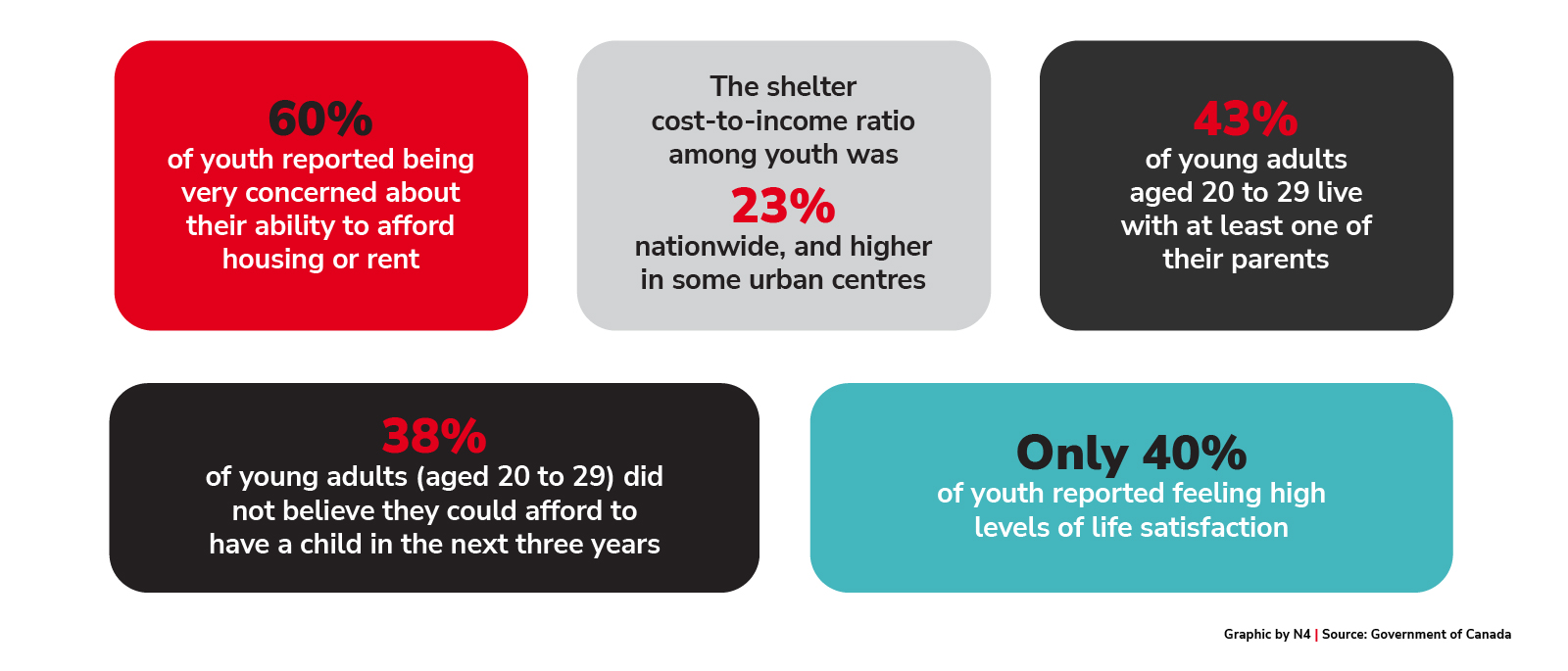Young people in Canada experience their own challenges and barriers to full participation in Canadian society, and life satisfaction. Although the data presented here are not always available for immigrant and refugee youth, the issues presented are relevant to professionals working with young people of any background.
Socio-economic obstacles
According to the 2021 census, 23% of the Canadian population was born outside Canada. Immigrants of all types experience a poverty gap compared to Canadians born in Canada.
Poverty rates in Canada (2021 census)

Source: Statistics Canada Government of Canada, “Disaggregated Trends in Poverty from the 2021 Census of Population,” November 9, 2022, https://www12.statcan.gc.ca/census-recensement/2021/as-sa/98-200-X/2021009/98-200-X2021009-eng.cfm.

Source: Statistics Canada Government of Canada, “The Daily — Navigating Socioeconomic Obstacles: Impact on the Well-Being of Canadian Youth,” September 20, 2023, https://www150.statcan.gc.ca/n1/daily-quotidien/230920/dq230920a-eng.htm.
Socio-economic concerns of young people in Canada
Youth and caregiving in Canada
About 19% of youth in Canada are caregivers. 15- to 24-year-olds also make up 7% of so-called ‘sandwich caregivers’ – those providing care to both a person under 15 years of age and one over 15 years of age. Government analysis suggests that providing care can hinder participation in democratic processes like voting, as well as impact the education, work or independent living of young caregivers.
Relationship between the caregiver and their primary care receiver (2018 data)

Source: Statistics Canada Government of Canada, “Chapter 6: Political Participation, Civic Engagement and Caregiving among Youth in Canada,” July 19, 2022, https://www150.statcan.gc.ca/n1/pub/42-28-0001/2021001/article/00006-eng.htm.
Suggested Citation: National Newcomer Navigation Network, "Issues Facing Youth in Canada: Socio-economic Obstacles and Unpaid Caregiving", May 2024, https://www.newcomernavigation.ca/en/data/issues-facing-youth-in-canada.aspx



